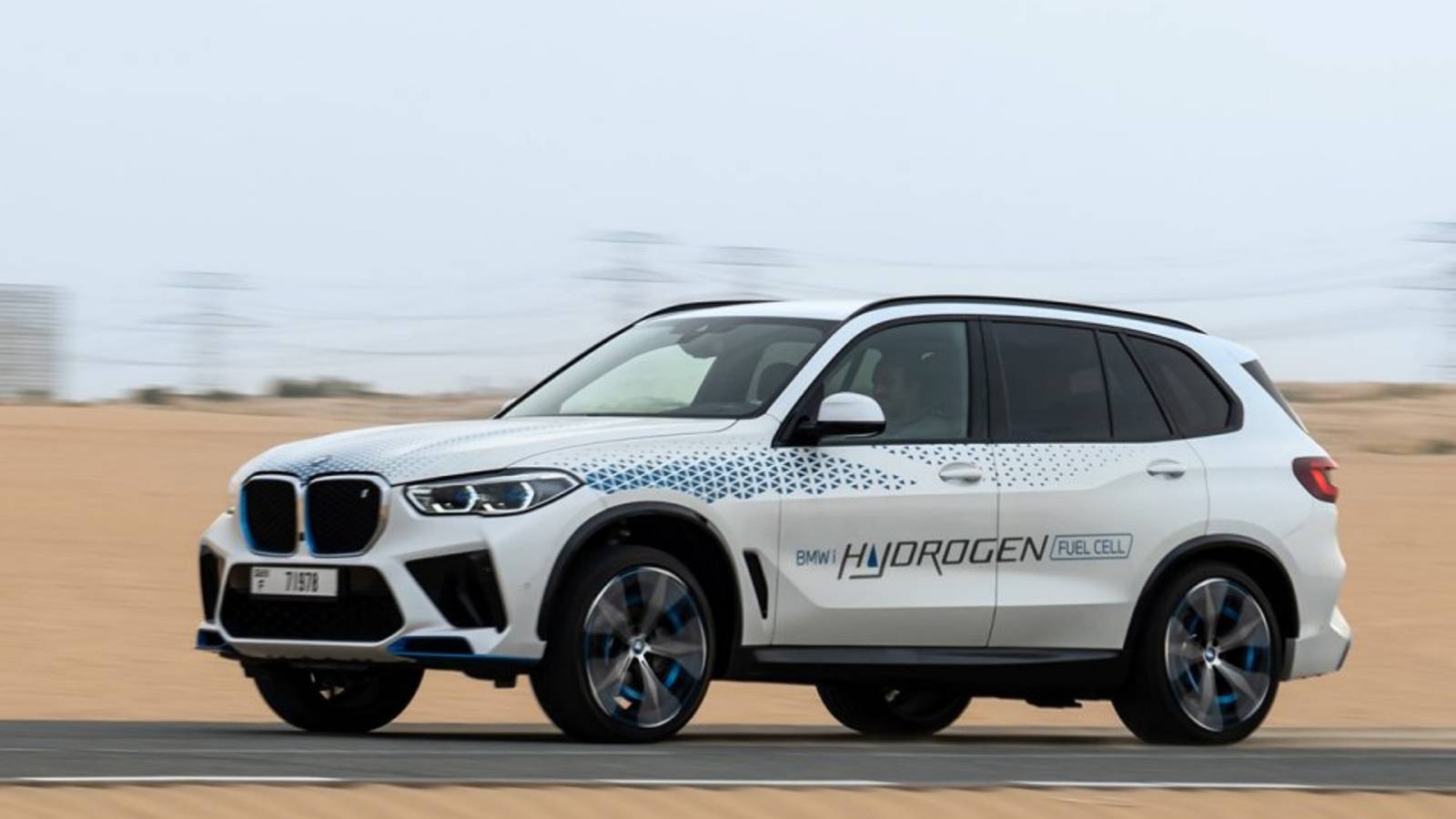BMW is ramping up on what it claims to be its first-ever series production hydrogen fuel-cell electric vehicle, going on sale by 2028. However, the German automaker has had a few “first hydrogen cars” in its past, dating all the way back to the late 1970s. What will make these future hydrogen FCEVs different is ideally the scale at which they’re sold and adopted, with reports indicating the brand is prepping a hydrogen powertrain for its popular BMW X5 SUV, though even the brand admits it will be limited by infrastructure.
Let’s clear up the hydrogen “firsts” for BMW. In 1979, the company managed to redevelop an E12 BMW 520 sedan with a liquid hydrogen powertrain, with other early testing done with the later E23 and E32 generations of the 7 Series sedan. Another small number of 7 Series production in 2000 had been modified to be FCEVs, with a clear hood as a showcase for the technology on a world tour.
The so-called 535iA sedan showed off fuel-cell technology again in 2015, which targeted “sporty performance, driving comfort, and long-range capability.” Another pilot fleet of hydrogen versions of the X5 SUV (called the iX5) were produced in 2023.
Now, Autocar reports that the future Neue Klasse BMW X5 SUV redesign will offer various powertains, including pure gas, diesel, plug-in hybrid, fully electric, and fuel-cell hydrogen setups, and it’s expected to be the “first series production hydrogen” model produced by BMW for 2028.
BMW hasn’t named the first production model just yet, but has confirmed that it’s building the first prototypes of the vehicles now, which means we’ll likely see them out testing soon enough. The new hydrogen BMWs will run on what the company considers the third-generation of its hybrid tech development. That 2015 hydrogen 5 Series sedan featured a borrowed fuel cell drive system from Toyota, which was the first generation BMW considers.
The later iX5 hydrogen SUV test fleet featured a system internally developed by BMW itself, but with Toyota-supplied fuel cells. This new third-generation hydrogen powertrain has been jointly developed by Toyota and BMW, with a majority of the parts manufactured by BMW in Steyr.
BMW says its third-gen hydrogen tech is good for mainstream commercial and passenger vehicle applications. The overall system is now said to take up 25% less space than previous setups, increasing power density. This new tech has also apparently been developed with various different platform adaptabilities in mind, which means there are likely more planned hydrogen models coming from both automakers by the end of the decade.
The first prototypes are being assembled in Munich for testing, but full production is due to begin in 2028 at BMW Group Plant Steyr in Austria. The hydrogen vehicles’ control unit, dubbed the BMW Energy Master, will be assembled starting in 2026 (it’s not clear why this production is so much earlier than the BMW vehicles themselves, but it could be for Toyota models).
Again, Autocar indicates we can expect the first hydrogen BMW to be some version of the fifth-generation X5, though the outlet also reports that it will be limited globally to markets that have suitable refueling infrastructure. The current state of hydrogen refueling is a nightmare in the US, so this could be more of a Europe/China-focused affair for the automaker. At least until America gets its act together on hydrogen.
Source: BMW, Autocar
We want to hear from you! Share your opinions in the thread below and remember to keep it respectful.
Your comment has not been saved
This thread is open for discussion.
Be the first to post your thoughts.
Every other American compact in the 1980s was actually a rebadged Japanese or Korean model. The Camry was almost one of these.
What are sodium batteries, how are they used, and are they better than solid-state batteries?
BMW started doing art cars like this 50 years ago, and hasn’t slowed since.
Well, low-cost compared to a $130,000 Porsche 911.
Ford recently unveiled a special anniversary concept, though there are no plans to make it. It could be argued that this decision is wrong.
The hatch is nearly dead in the US, but that doesn’t mean they’re bad cars, and the most reliable hatch built in 2020 can be yours for cheap.











